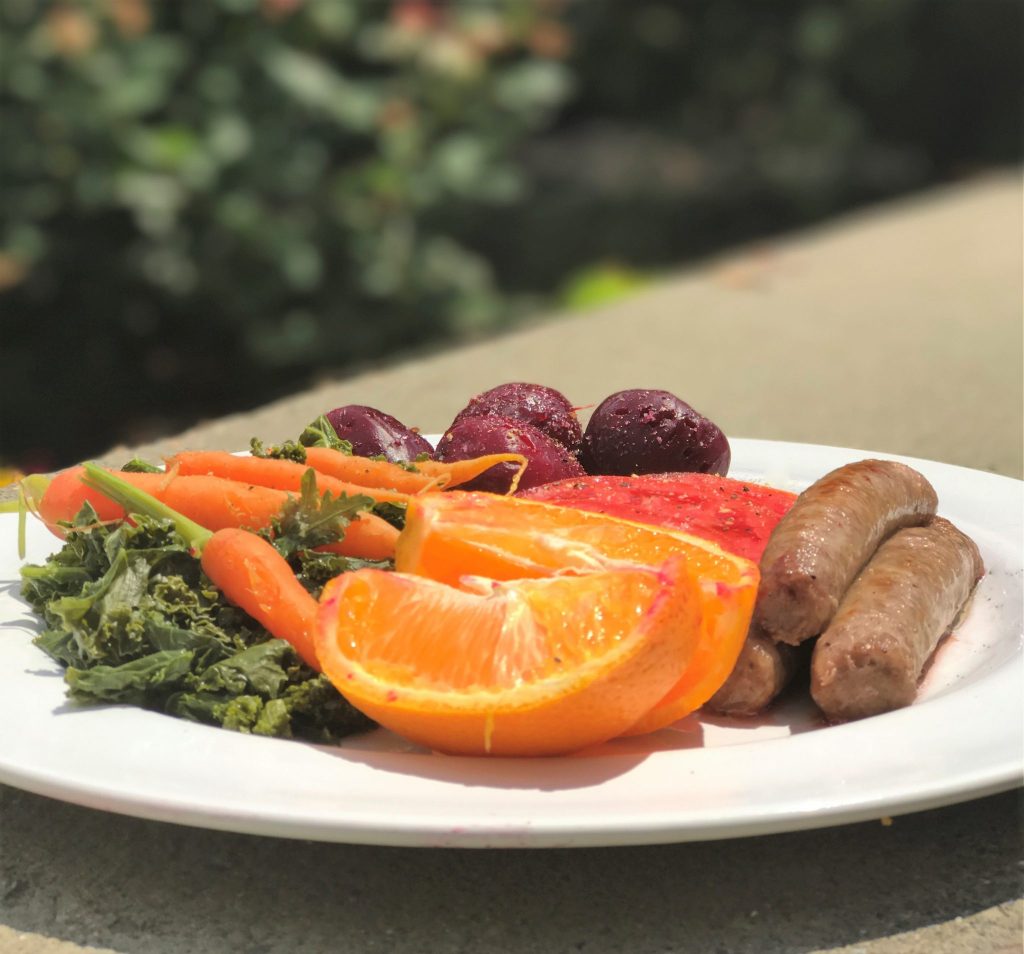Giving breakfast a new set of rules
When working with my clients and adjusting their diets, and possibly removing offending foods, it never fails that the panic “But what will I eat for breakfast” sets in, almost every time. Why? In the Unites States especially, breakfast usually consists of fast, convenient, highly processed foods. Many breakfast foods come from a box, manufactured in a plant. But we forget to eat actual plants! Typically breakfast foods are filled with highly processed, bleached grains, infused with chemicals, synthetic vitamins, sugars, high fructose corn syrup, GMOs, unhealthy salts, hydrogenated or rancid oils and artificial colors and flavors. Doesn’t that sound yummy? Breakfast of champions for sure!
Breakfast, dubbed as the most important meal of the day, has become a feast of unhealthy foods, that in a lot of cases have more sugar than dessert does. Grabbing a bowl of cereal, cereal bar or instant oatmeal has become a way of life – grab and go. The worst part, people believe they are eating something healthy because that is what they learned. “But Brand Name X is supposed to be the healthy version of cereal. Oatmeal is healthy, right? It’s a whole grain.” The problem is that cereal has been desiccated for too long and at too high of temperatures for it to have any nutritional value left for the body to recognize and absorb. Before it gets to your table, it has been stripped of any natural nutrients, that it once had in its natural state, and then it is embedded with a synthetic version of its original nutrients. These synthetic nutrients are often not absorbed or recognized and end up at the local waste treatment plant or in your septic system. New research is even starting to indicate that cereals might even be a health hindrance. These cereals, heated at such high temperatures, are denatured and possibly turn it into carcinogens. Not to mention, most of these cereals or breakfast bars are too high in sugar or high fructose corn syrup and carbohydrates, while lacking essential proteins or healthy fats that will feed the body and keep it sustained until lunch time. These sugary high carbohydrate foods create a blood sugar spike that will eventually end in a sugar crash later in the morning. Cheers to a second, third or fourth cup of coffee to keep you awake when that happens.
Nutrients, proteins, healthy fats and fibers are the most important elements in a healthy breakfast. Providing the body with what it needs to start the day with a great kick start. “But I don’t have time to cook a breakfast every morning before work/school.” The good news is that you can eat healthily and it will be convenient if you plan and prep a little beforehand. The first thing I tell people is that breakfast doesn’t have to be a particular food. It seems that we have pigeon-holed ourselves into the belief that between the hours we wake and around 11:00 am we can only eat specific foods – breakfast foods to be exact. I have the key, and I formally release you from those breakfast food chains. You may eat whatever you would eat for lunch or dinner for breakfast too. This morning I had a leftover grass-fed hamburger, from last night’s dinner, a sliced organic apple with olive oil and Celtic sea salt, and half an avocado. A meal filled with protein, fat, and fiber that will keep me satisfied for hours and won’t cause a sugar level crash. The great news is that it didn’t take much longer to prepare than a bowl of cereal or some instant oatmeal. If the sound of eating red meat first thing in the morning doesn’t sound appetizing to you, then, you may have leftover chicken, turkey, or fish, just make sure it’s a high-quality protein, raised correctly. If you can buy local, pasture-raised, organic eggs, please include these in your diet. If the protein is a low-fat item, make sure to add a healthy fat. If apples aren’t for you, or you can’t access organic apples, then any high fiber veggie will do. I often use spinach and make a salad or eat leftover collard greens, broccoli, cabbage; you get the idea, the list goes on. I encourage you to get your fiber from whole foods versus the processed kind that comes with a box and a label. Your body will recognize and absorb the nutrients from the whole food more efficiently and will thank you by giving you sustainable energy. Give it a try for a week and see how it goes.

